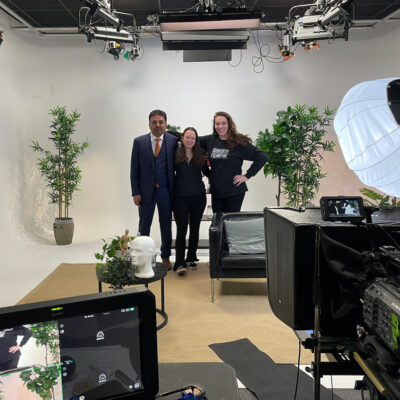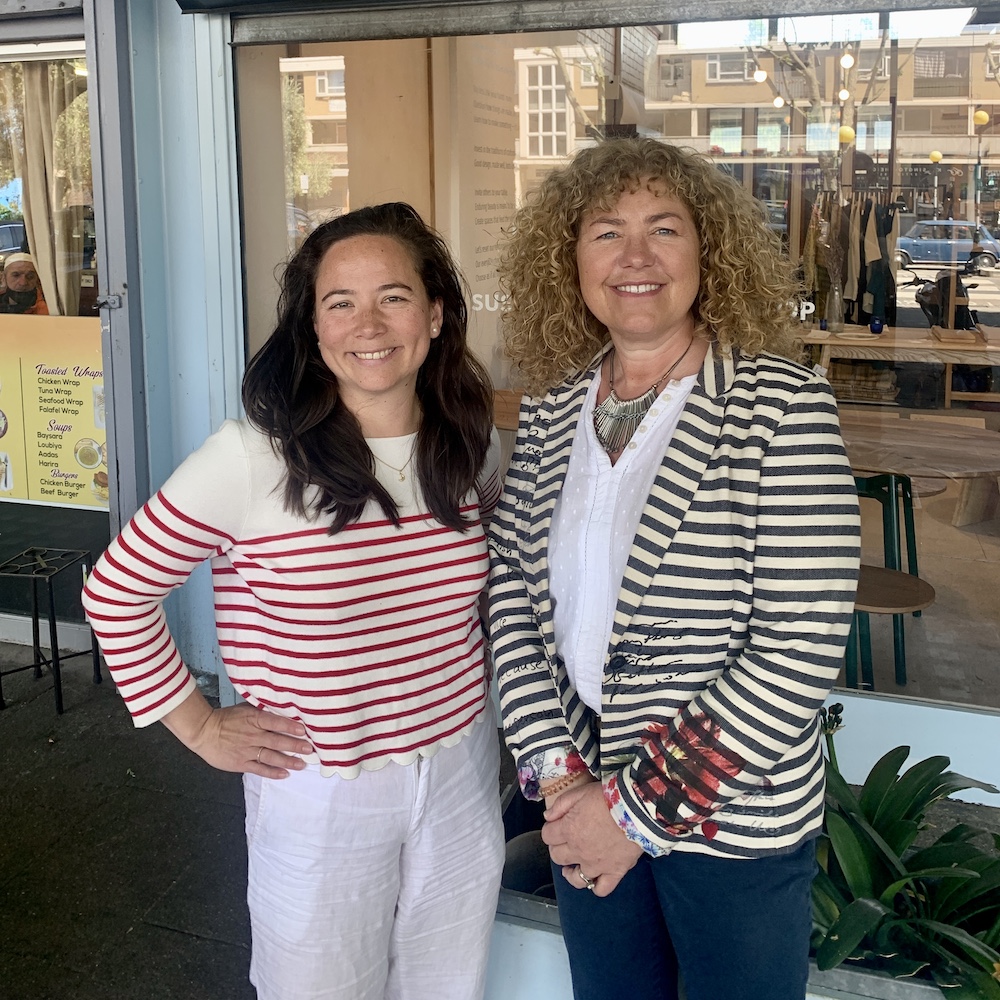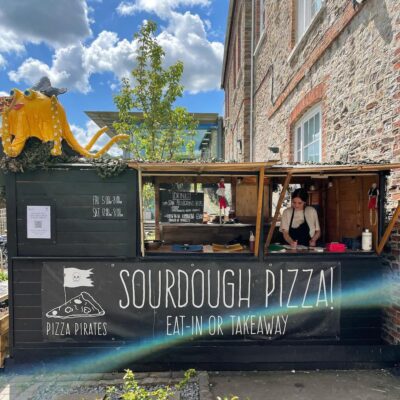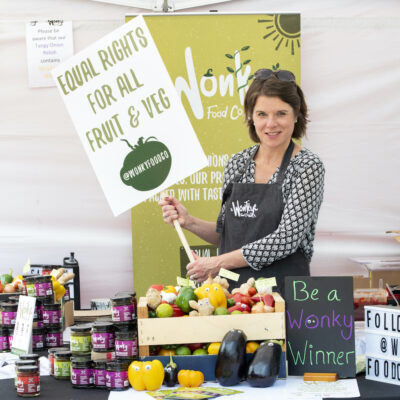
Working in the business v working on the business
What happens when you’re so busy doing the work that you can’t take a step back and focus on strategy for the business you know can grow?
Marie Cudennec Carlisle’s business was suddenly vulnerable when her customers ceased orders during the pandemic. But a supportive phone call from a fellow social entrepreneur changed everything.

Pictured above: Marie Cudennec Carlisle and Karen Lynch outside Goldfinger.
After the periods of lockdown during the pandemic, no one is any longer in doubt about the value of social connection.
In the case of Goldfinger, a sustainable furniture company, a supportive bit of outreach from one social entrepreneur to another helped make the difference between survival and winding up the business. The icing on the cake was that Goldfinger could continue to support vulnerable members of their own local community.
When Covid-19 numbers accelerated in March 2020 UK prime minister Boris Johnson said public facing businesses should shut, and told people they must stay at home. One of Expert Impact’s most prolific mentors Karen Lynch called Goldfinger founder Marie Cudennec Carlisle to see how she was doing.
“Karen asked what my main concern was and I said ‘funding’. Our entire business model had been disrupted by Covid. We make furniture for the hospitality industry and they had all pulled their orders,” said Marie.
Alongside co-founder Oliver, Marie had been gradually scaling Goldfinger since 2015. They’d seen their best year of business pre-pandemic in 2019, when turnover had grown to £400K.
Oliver had chosen to leave the business a couple of years after launch, leaving Marie to learn on the job as CEO. For much of that time she felt like she could only really achieve lift off for the business if she had more staff to whom she could delegate tasks while she focused on strategy.
Meanwhile, Marie did what she could, asking her investors if they would restructure Goldfinger’s debt. Given the pandemic circumstances, they agreed, forsaking some of their repayments so that loans effectively became grants.
“Alongside the furlough scheme the grant income completely saw us through and thank goodness because we would have gone bust otherwise,” said Marie. The turnover of Goldfinger shrank to £130K during 2020.
During their phone call, Karen suggested Marie apply for Postcode Innovation Trust funding, which was aimed at businesses that wanted to be less grant dependent.
Happily, the application was accepted. With that funding, Marie has been able to take on five more staff (some part time) to whom she can delegate the operational tasks that take up the time she needs to focus on leading the business forward.
“It’s single handedly one of the greatest things to happen to Goldfinger, to be able to invest in our team and machinery and all the things that we need to grow,” said Marie.
And in the midst of challenging times, something wonderful also happened. Goldfinger had been inviting locals to eat for free once a month on a Sunday at their ‘Community Kitchen’ as a way of giving back to their community.
Their diners were mostly low income, elderly residents from the social housing blocks close by, with the food cooked up by the chefs in the cafe that sublet half their premises. But then Covid put a stop to social gatherings.
Realising social connection was more important than ever (and also that some good PR would help potential locked down customers not to forget them) Goldfinger started to offer a free food delivery service.
Furloughed staff volunteered their time to help with the deliveries and local high net worths in neighbouring Notting Hill, alongside corporate donations, paid for the food. There was only one problem.
“We then had to go and find these people who had been coming to the Community Kitchen – where did they live? They’re not on social media, some of them didn’t have mobiles, they have landlines. It was all these informal networks of who knows who. So we started putting flyers up in the tower blocks,” said Marie.
“We went from doing a meal once a month for 50 people to delivering 200 meals every single Sunday. It all happened in the space of three weeks.”
Like us, Marie is a big believer in the power of connection. And now that she has more staff to share the Goldfinger work, she is working on the kind of leadership she always wanted to bring to the table. The turnover in the coming year is forecast to be the best yet.
“I’ve had some great mentoring over the years, and some support that has really helped give me more of a structure and process. And I can’t wait to be able to take a step back to work on the strategy – looking ahead and working on the business rather than in the business,” said Marie.
Are you looking for a mentor to help you with the growth of your business? If so, start here.

Working in the business v working on the business
What happens when you’re so busy doing the work that you can’t take a step back and focus on strategy for the business you know can grow?

How social enterprise can boost your marketing
Social enterprises often want to compete in the market on the quality of the service or product they are selling. But a change in strategy reaped dividends for one social entrepreneur.

The Wonky way to grow a social enterprise
How do you make the leap from startup to scale up? Ashley Cavers from The Wonky Food Company tells us how they tackled the challenge all young companies face as they grow.